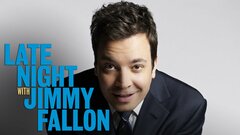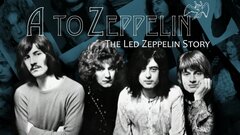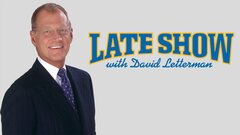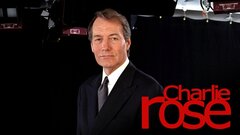Arguably one of the most influential singers in the history of rock-n-roll, Robert Plant was the voice of the mighty Led Zeppelin, the British blues-rock behemoth that stormed the world during the late 1960s and early 1970s with such earth-shaking songs as "Whole Lotta Love," "Dazed and Confused, "Stairway to Heaven" and other hard rock anthems. With Zeppelin, Plant helped to set the tone for the next four decades of rock music with his powerful voice, highly theatrical stage presence and mystic-influenced lyrics, which could be seen, heard and felt in countless later bands ranging from heavy metal acts like Black Sabbath to alternative groups like Soundgarden and Pearl Jam and even pop performers like Shakira.
Plant attempted to emerge from Zeppelin's massive shadow in the decades that followed their 1980 breakup, finding success as a solo performer while balancing reunions with his former bandmates. In 2007, he finally established himself as an entity outside of Zeppelin with Raising Sand, an eclectic collection of covers with bluegrass performer Alison Krauss that swept the Grammys in 2009. But Plant's greatest legacy continued to be his work with Zeppelin, which remained an eternal inspiration for decades of rock fans.
He was born Robert Anthony Plant on Aug. 20, 1948 in the West Midlands town of West Bromwich, England, the son of civil engineer Robert C. Plant and his wife, Annie. Raised in Kidderminster, near Birmingham, he fell in love with rock-n-roll at an early age, with Elvis Presley among his earliest influence. Like many young men of his generation, he was fascinated by American blues music, and left school as a teenager to exercise his passion for the genre through a variety of bands. He would eventually cut a handful of obscure singles for CBS before joining the Crawling King Snakes, which featured a powerful drummer named John Bonham. The two would go on to form The Band of Joy, a blues-rock act with soul and psychedelic influences. However, the group would dissolve in 1968 due to their inability to secure a recording contract.
While performing in a group called Hobbstweedle in 1968, Plant was approached by guitarist Jimmy Page to join a new version of the Yardbirds, the venerable blues-rock group that had counted Eric Clapton and Jeff Beck among its former members. Plant accepted the offer, and suggested Bonham for drumming duties. With the addition of bassist John Paul Jones, whom Page had known from various recording sessions, the New Yardbirds proved a formidable act, combining their prowess with blues and rock with extraordinary volume and sonic density. They would eventually rename themselves Led Zeppelin, to suggest a combination of weight and combustibility with grace, and secure a recording contract with the American label Atlantic Records.
On stage with Zeppelin, Plant helped to redefine the sound and image of the rock singer. With his long, cascading blond ringlets of hair, tight trousers and flamboyant gestures and vocals, he came across as a highly sexualized blend of hippie mystic and blues wailer, with elements of unabashed showman thrown in for good measure. In later years, Plant would good-naturedly dismiss his "golden god" stage persona as a blatant carbon of heroes like Presley and Howlin' Wolf, but the impact he had on singers of the period and future generations, who bared their chests and threw back their heads in dramatic howls, was immeasurable. Nearly all hard rock singers from the 1970s onward owed a portion of their stage presence to Plant.
The singer's other great contribution to Zeppelin was his song lyrics. Initially, the majority of the band's songwriting was handled by Page, Jones and Bonham, but by the release of their second album, Led Zeppelin II (1969), Page began contributing lyrics in earnest, penning nearly all of the album's tracks. Like his stage persona, Plant's writing took cues from mystical references, with elements of classical Norse and Welsh mythology surfacing in "Immigrant Song," "No Quarter" and "Bron-Y-Aur Stomp." The published works of fantasy author J. R. R. Tolkien also figured prominently in his lyrics, most notably in "Misty Mountain Hop" and "Over the Hills and Far Away." In later years, he would also draw from Eastern mysticism for the epic "Kashmir" and classic blues and R&B for "The Lemon Song" and "Trampled Under Foot," which came the closest to Zeppelin approximating a funk number. Arguably, however, his most indelible lyrical effort for the group was 1971's "Stairway to Heaven," a sprawling, folk-influenced ballad composed almost spontaneously by Plant during recording sessions for Led Zeppelin IV. The lengthy, ambitious track became Zeppelin's most enduring song, thanks to constant airplay on rock format radio stations; for many, it was the peak of craftsmanship in hard rock circles, while for others, the embodiment of musical self-indulgence.
In 1975, Plant and his wife, Maureen, were badly injured in a car accident while on holiday in Greece. His injuries required lengthy recuperation, which forced Zeppelin into hiatus at the height of their popularity. They returned triumphantly to the concert trail in 1977, only to once again cancel shows after the death of Plant's son, Karac, from a stomach virus. Four years later, Zeppelin was forced to disband following the alcohol-related death of Bonham. Plant set to work on his solo career, which began in 1982 with Pictures at Eleven. Its follow-up, The Principle of Moments (1983), generated two Top 40 hits with the mellower, electronic-inflected "Big Log" and "In the Mood" (1983). The following year, he scored an unlikely hit with a cover of Phil Phillips' '50s-era ballad "Sea of Love" from The Honeydrippers, Vol. 1 (1984), a collection of early rock covers that featured Page on several tracks. The collaboration sparked rumors of a Zeppelin reunion, which came to pass in 1985 with Plant, Page and Jones appearing at the Bob Geldof's Live Aid concert at JFK Stadium, with Phil Collins and Chic's Tony Thompson filling in for Bonham. The performance was a disappointment for the three former bandmates, who resisted follow-up reunions for the better part of the next decade.
Plant returned to his solo career with 1985's Shaken 'n' Stirred, which featured the single "Little By Little," which briefly topped the singles charts. However, the album itself, which favored synthesizers over rock guitars, sold poorly, and Plant would remain absent from recording for the next three years. In 1988, he reluctantly answered the call for more Zeppelin by tapping Page for two tracks on his next solo album, Now and Zen, including the Top 40 hit "Tall Cool One," which featured samples from the band's past catalog. The surviving members again reunited for the 40th anniversary of their old label, Atlantic Records, though the performance was again regarded as a failure, with Page and Plant arguing moments before show time over the inclusion of "Stairway" in their brief set list.
Kicking off the new decade with a bang, Plant released another solo effort, Manic Nirvana that produced two minor hit singles, "Hurting Kind (I've Got My Eyes on You)" and "Your Ma Said You Cried in Your Sleep Last Night." In 1994, Plant and Page settled their differences and participated in "UnLedded" (MTV), a TV special that saw them reworking various Zeppelin songs with a symphony orchestra and Middle Eastern musicians before a live audience. Their collaboration, which also spawned a new album, No Quarter: Jimmy Page and Robert Plant UnLedded and a successful world tour, was met with glee by Zeppelin fans, who also noted the absence of John Paul Jones with some dismay. Plant had deliberately left his former bandmate out of the project due to long-simmering disagreements between the pair. Jones acknowledged the rift during the band's acceptance speech following their induction in the Rock and Roll Hall of Fame by thanking his former bandmates for finally remembering his phone number. Plant and Page would reunite a second time for 1998's Walking into Clarksdale, an album of entirely new material. Commercial response was tepid, and the two men resumed their solo careers.
Plant kept a low profile for the first years of the new millennium, performing at small clubs with a folk-rock band called Priory of Brion and contributing to various recorded projects. In 2001, he formed a new group, Strange Sensation, with whom he recorded Dreamland, a collection of obscure covers performed in his signature blend of blues-rock and world music grooves. It netted positive reviews and two Grammy nominations, as did its follow-up, Mighty ReArranger (2005), which featured all new material. Despite these successes, the shadow of Zeppelin continued to loom large over Plant. An eponymous six-hour DVD set of live footage in 2003 became the best-selling music DVD in history, and the surviving band members reconvened for several career tributes, including the Grammy Lifetime Achievement Award in 2003, the Polar Music Prize from Sweden in 2006, and induction into the U.K. Music of Fame that same year. Plant seemed to take the band's immortality in stride by including Zeppelin tracks in his live set lists throughout his tenure with Strange Sensation.
However, 2007 marked the beginning of Plant's seemingly incongruous collaboration with celebrated bluegrass singer and fiddler Alison Krauss. The duo recorded Raising Sand, a 2007 collection of lesser-known folk, blues and country songs that reaped the best reviews of Plant's solo career, as well as a 2008 Grammy for Best Pop Collaboration for the single "Gone, Gone, Gone (Done Moved On)." The following year, Raising Sand swept the Grammys, winning five awards including Album of the Year. However, the record's success was nearly overwhelmed by news of a Zeppelin reunion at the 2007 Ahmet Ertegun Tribute Concert in London. Despite rave reviews for their two-hour performance, which featured Bonham's son Jason on drums and set world records for highest ticket demand for a single concert, Plant resisted a $20 million offer to tour with the reunited group, citing his desire to continue recording and touring with Krauss. In 2009, Plant was appointed Commander of the Order of the British Empire (CBE). The following year, he formed a new group, which he named Band of Joy after his first collaboration with John Bonham in the late '60s. The group recorded a self-titled album that same year, which broke the Top 10 on the Billboard albums chart and spawned a successful tour of mid-sized venues. In 2011, Plant was named the "Best Lead Singer of All Time" by Rolling Stone.
By Paul Gaita





















































































